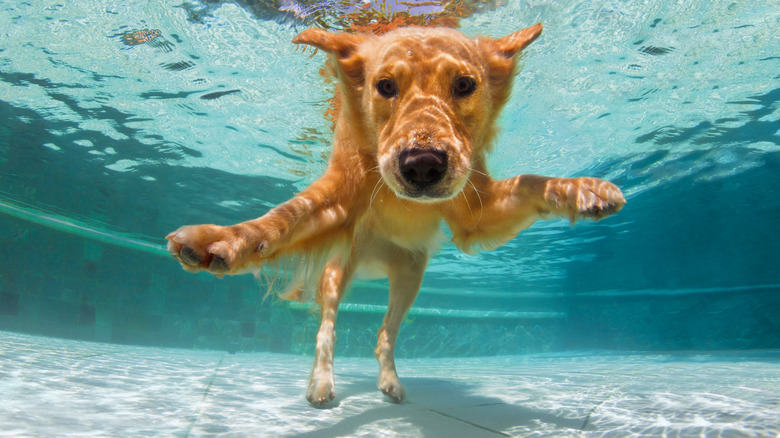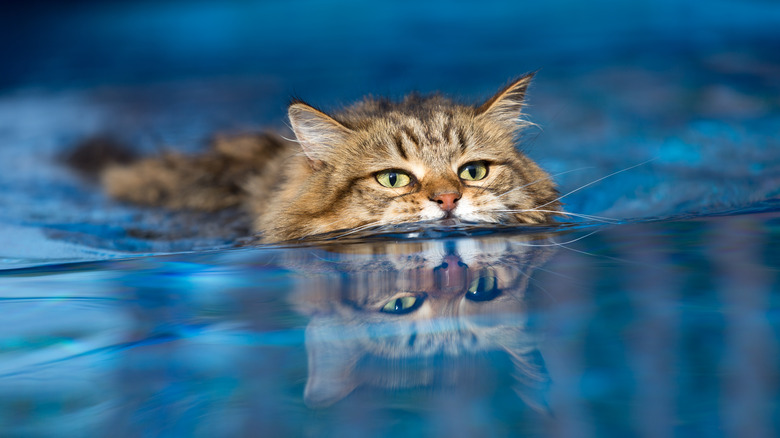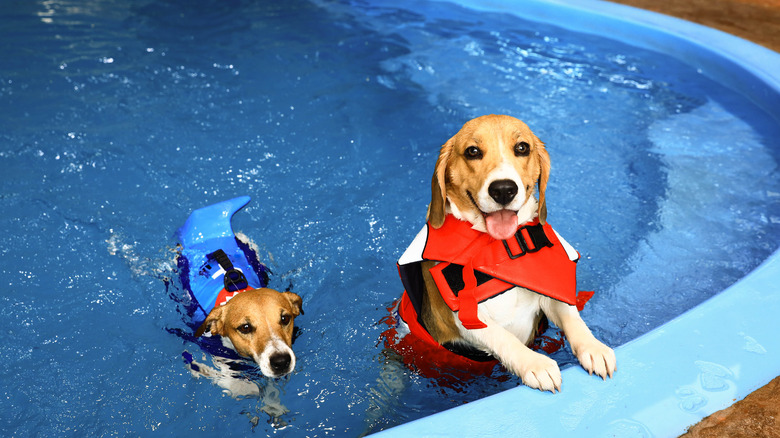Are Saltwater Pools Safe For Your Pets?
Pet owners who have pools can attest that some of our domesticated friends love to swim — especially dogs. Dogtipper agrees that pools offer pets a way to cool down in the warm months as they do for people. While not all dogs fancy a dip in the pool, if yours does, there's a high likelihood they'll ingest some pool water. Most of the time, your pet will only be in the pool when you're out there, too, so it's easier to keep an eye on things — like how much salty pool water they are consuming.
Before you get worried about your pup's safety, or the security of any other pet or animal that may take a sip from your saltwater pool, we have some details that may ease your mind. Your pet's wellbeing is a priority when it comes to how much salt is really in that pool and how to maintain a safe experience for your water-loving critters.
The saline content of your saltwater pool
You've probably heard that you shouldn't drink salt water — the saline content of oceans is far higher than that of your backyard pool, though. According to In The Swim, saltwater pools contain 3000 ppm of dissolved salt, not even enough for it to taste salty for most people. While you may not be able to taste it, too much salt water in the body can cause severe dehydration and even death, points out the National Ocean Service. If salt water isn't good for you, then it makes sense it's not something you want your pets ingesting regularly.
Discount Salt Pool says that if you keep your saltwater pool clean and ensure it has the right amount of salt in it, your pet (and even you) swallowing some water from time to time won't be harmed. The key is to upkeep that pool and control how much water your pets ingest from the swimming hole. Test your salt levels and keep your pet away from the pool when you do any kind of treatment.
Control how much pool water your pet drinks
Aside from ensuring your pets aren't around the pool after treatments, there are other things you can do to help keep dogs and other pets from drinking more pool water than they naturally swallow during a quick dip. One thing you definitely want to do is to have fresh water available poolside so that they can get a refreshing, safe drink when they need it.
Never let your pets access the pool when there isn't someone around to watch them — just like you would with young children. This way, you can be sure they're not drinking too much pool water and that they're not getting exhausted swimming or having any other accidents around or in the pool. Dogtipper also reminds pet owners that the increased water intake during swimming can make your pet need to pee more -– so be sure to give your pooch some extra time outdoors to avoid indoor accidents.


